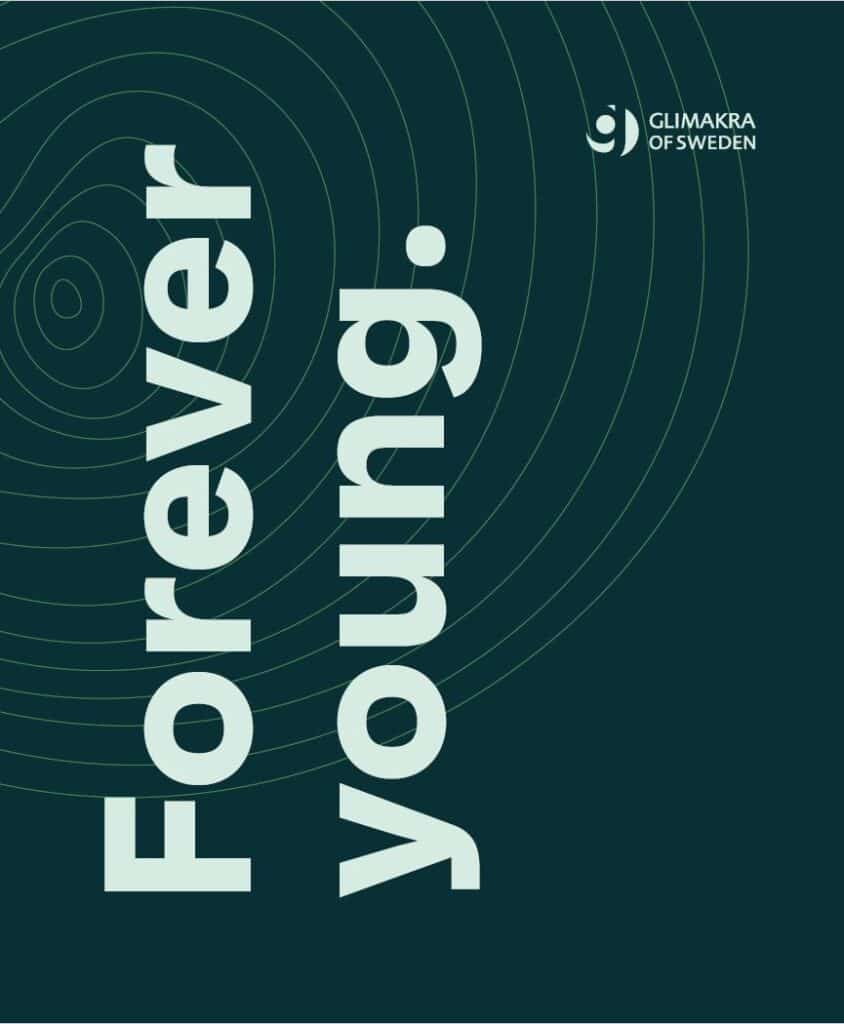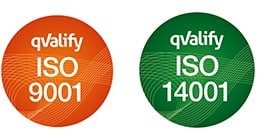Transforming tradition for future generations
Some things change dramatically over generations. Others endure unaffected. When Lennart Persson and Yngve Nilson started a loom factory – that would become today’s Glimakra of Sweden – they couldn’t have guessed the state of our 2020 world.
In 1950, the concept of sustainability didn’t even exist – nor was tiny Glimåkra village aware of current issues affecting the fate of humanity. Yet the ideas that built the company 70 years ago are perhaps more relevant now than ever. The meaning of craftsmanship. The importance of working with local, rural suppliers and materials from neighbouring forests. And the belief that both design and production should last for generations. These are the values that have shaped our business and that still characterise how we view quality and sustainability.
We’ll continue to develop and find new solutions based on current and future conditions. But everything we deliver should still withstand the test of time – products that can survive for generations without endangering the prospects of future generations. Forever young.
Our five focus goals

Proximity is an important perspective for us, but we must also zoom out. Throughout our products’ life cycles, they impact the planet’s resources and human conditions – imprints we’re working to reduce.
We use the UN Global Sustainable Development Goals to put our business into a wider perspective and direct our sustainability efforts to the right things.
Based on the 17 goals, we’ve identified five goals to focus on going forward. Our priority is to be able to invest in the goals closest to our business and where our efforts can make the biggest difference. We see the greatest opportu-nities in goal 12: Responsible production and consumption.
Read more about our sustainability work in our brochure.

Environment and quality
With the customer in focus, we aspire for our business to have as little environmental impact as possible. We use 100% renewable energy. Our products are timeless and of superior quality with a long life. We use pure, unmixed materials as far as possible which makes product recycling easier. To further shield the environment, we choose suppliers in the immediate area and thereby reducing transportation distances.
It is our objective to satisfy our customers’ requirements at each individual order under the conditions we have. Our customers should be confident that the delivery is made on time and with the right quality.

Glimakra of Sweden is environmental and quality certified according to ISO 14001 and ISO 9001. See certificate here.
Most of our products are labelled with Möbelfakta. Möbelfakta sets strict requirements for quality, environment and social responsibility. Thus, Möbelfakta is the most complete product labelling for Swedish furniture. When you buy a product labelled with Möbelfakta you can be sure that you get a great product.
Partners with sustainability in focus
We collaborate with place2place when it comes to reusing single products that we have used for exhibitions and photography. These products could just as easily have been thrown away, but we choose to give them a better future via place2place.
place2place considers to be Sweden’s first digital marketplace for circular interiors. The company was founded on the basis of the question – why is recycled furniture not used to a greater extent than it is today? Read more about them on their website.
Another step in working with sustainable production is to review our residual waste that our wide range of fabrics generates. And with project Wargön we get that opportunity. The idea is that we will be able to create something new from the residual waste, but also from circular products where we offer new fabric upholstery. Since we mainly focus on the production of sound absorbing screens and furniture, our hope is that the residual waste can, for example, be used as sound absorbing upholstery in our acoustic, Swedish made furniture.
CEO Anders Barrklint:
“We also want to be able to use other companies leftover material, as our own is not enough. We will be required to solve some problems to make it work, one of the challenges is that we must have full traceability of the constituent materials in our products.
It can be said that in this project we are starting to look at problems that goes beyond our own processes and that we are taking on a responsibility that will be in the public interest, if we can solve the question of how we can handle different waste fractions from different sources. ”
Read more about project Wargön here.

